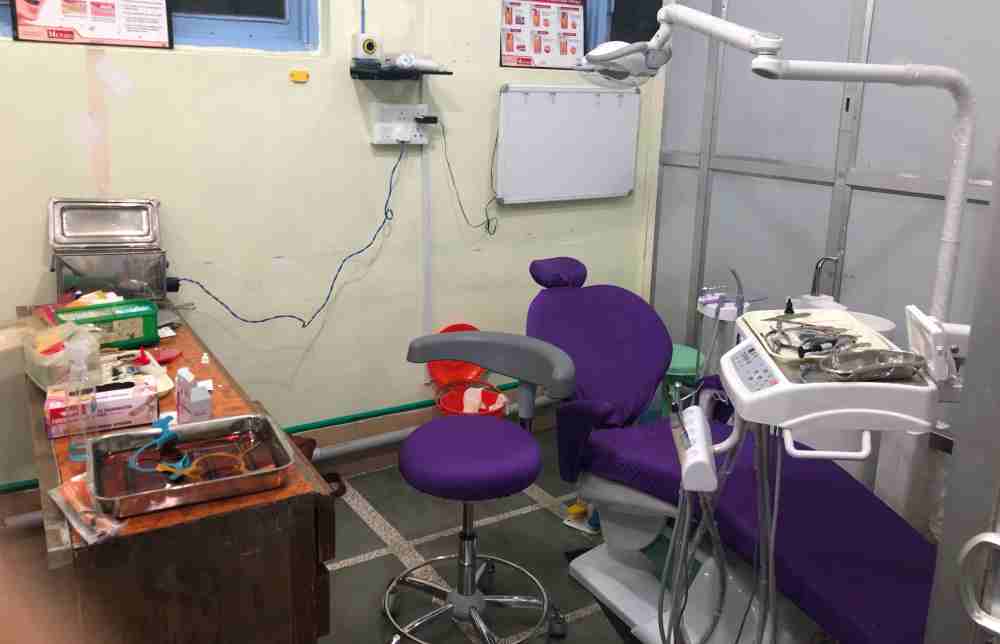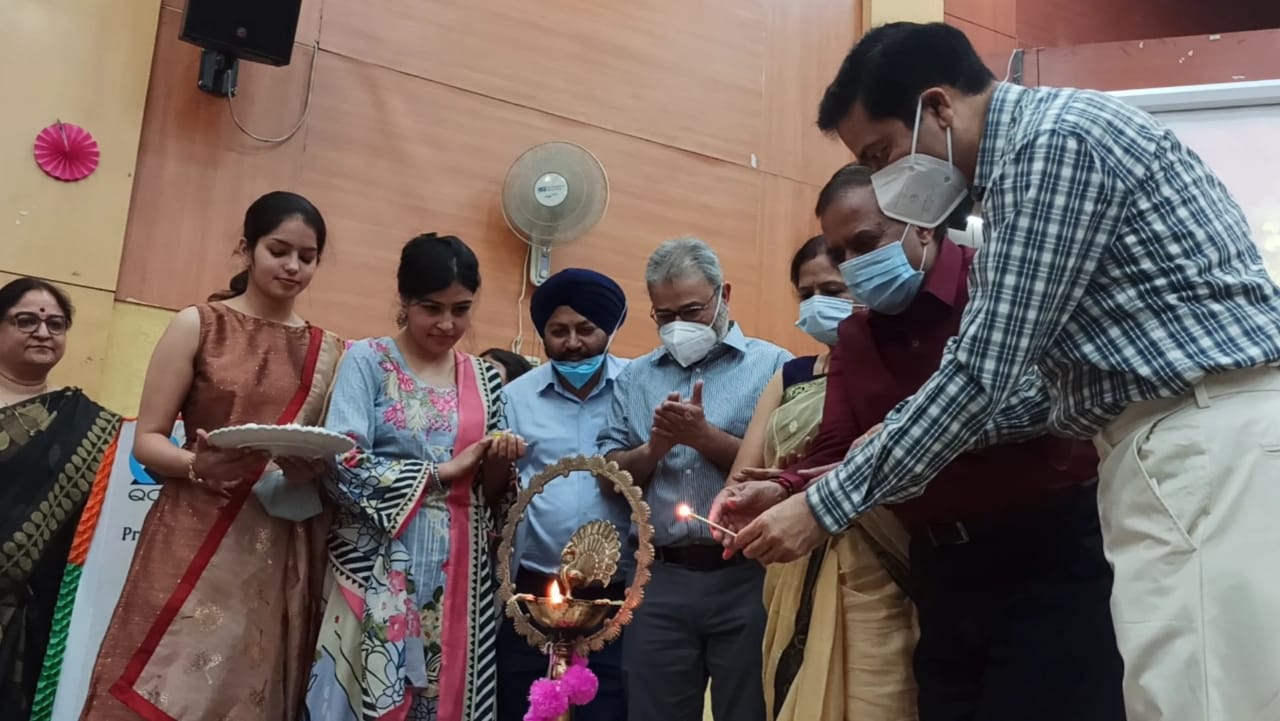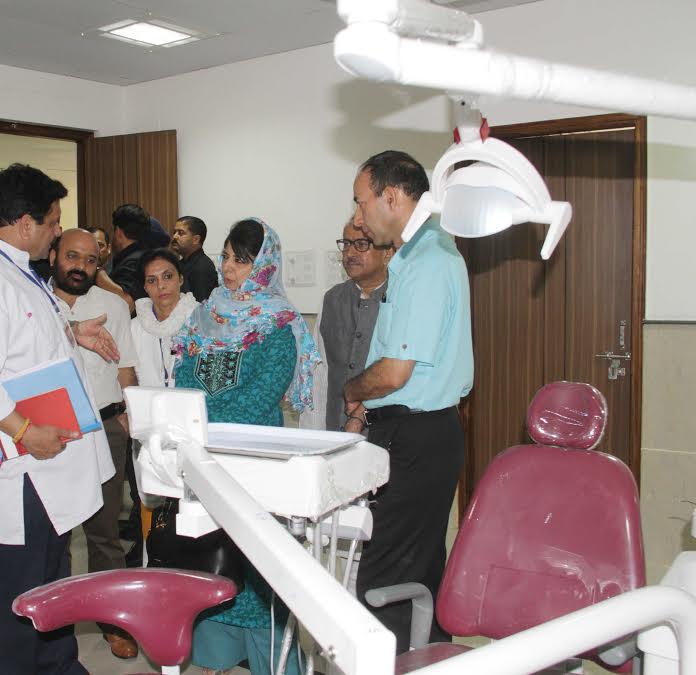In Kashmir, where a staggering 50 per cent of the population suffers from dental caries and 45 per cent from periodontal diseases, experts stress the importance of diligent oral care in preventing these conditions and promoting overall health, Syed Batool Andrabi reports

Ruqaya sought the expertise of an esteemed dentist, Dr Tika Rashid due to a nagging discomfort in her left jaw and a troublesome cavity. “I assumed the cavity was the root of my pain, but to my astonishment, the doctor recommended I consult a neurologist,” she recounted.
Following her consultation with the neurologist, Ruqaya received a diagnosis of Trigeminal Neuralgia (TGN). “It was at this juncture that I grasped the significance of oral health in the broader context of medical care,” she said. “Had my dentist not alerted me to the possibility of an underlying neurological issue, I may have remained oblivious to it.”
A majority of people often overlook their dental concerns, deeming them trivial. However, diligent oral hygiene can prevent many other health complications. The mouth merely is not a window for food only, it is a door to various diseases too. Oral health is not separate from overall well-being but is inextricably linked to our general health. It provides crucial insights into susceptibility to multiple ailments, from diabetes to heart disease.
Besides, oral health has a profound impact on our psychosocial well-being, influencing our self-confidence and ability to engage in social interactions without the burden of pain, discomfort, and embarrassment. It transcends age.
Oral Health and Diabetes
Dr Aijaz Amin Masoodi, a consultant in conservative dentistry and endodontics at the Government Dental College and Hospital in Srinagar, asserts the significance of oral health in revealing valuable insights into an individual’s overall well-being. “A simple mouth examination can yield clues about a patient’s sugar levels,” he notes, information their research has established the crucial role of good oral hygiene in preventing systemic diseases including diabetes.
“I visited a dentist for a toothache, and he suggested I check my blood sugar,” school teacher Bashir Ahmed shares. “Upon doing so, I discovered I was diabetic.”

According to the World Health Organisation (WHO), individuals with diabetes are more susceptible to periodontal disease, severe gum infections, persistent bad breath, chewing difficulties, and even tooth loss. “Diabetes impairs the healing process, which can hinder the treatment of periodontal disease,” Masoodi asserted.
Dr Irfana Zargar, an orthodontist, stresses the importance of oral health in preventing systemic diseases. “A healthy smile reflects our overall wellbeing,” she said. “Managing diabetes begins with managing our oral health.”
“Healthy teeth and gums are indispensable for efficacious chewing and articulation, which, in turn, profoundly impact our nutritional intake and communicative abilities,” said Dr Nouman. “Gum diseases increase the risk of heart diseases and stroke, as inflammation from infections may contribute to arterial plaque build-up.”
The mouth harbours many microorganisms, comprising trillions of bacteria, viruses, and fungi. While some of these entities are benign, others have the potential to precipitate infections triggering gum disease and tooth decay. Oral bacteria can permeate the bloodstream, traversing distant regions of the body and triggering inflammation, as well as inciting many systemic diseases, including diabetes, heart disease, and Alzheimer’s disease, among others, dental experts insist.
Oral Health and Heart Disease
The intricate relationship between oral health and heart disease has been underscored by compelling research. “Studies conducted by The Delta Dental Plans Association have unearthed two significant correlations,” Dr Ajaz said. “Firstly, moderate to advanced gum disease substantially elevates the risk of heart disease. Secondly, oral health can serve as a warning sign for various diseases, including heart conditions. The connection between oral health and heart disease is rooted in disseminating bacteria and germs from the mouth to other bodily regions via the bloodstream, precipitating inflammation in damaged cardiac areas.”
Samia Haneef, a college professor, recounted her personal experience. “I visited Delhi for a gingivectomy, and following an examination, my dentist informed me that I was confronting a heart condition,” she recalled. “I was incredulous, as I had never experienced any pain or symptoms suggestive of heart disease. However, my dentist insisted that I undergo further testing, and indeed, the ECG revealed the presence of a heart condition.”
“Chronic heart patients must exercise extra vigilance in maintaining their oral health, as there exists a reciprocal impact between dental health and heart health,” Dr Irfana Zargar said. “While a direct causal link between gum disease and cardiovascular disease may not exist, a third factor such as smoking can increase the risk of both conditions. Other potential confounders include inadequate access to healthcare and a sedentary lifestyle, which can contribute to poor oral health and heart disease.”
Mental Wellbeing
The intricate relationship between oral health and mental well-being has been highlighted by recent research from the World Psychiatry Association (WPA). Dental health problems can have far-reaching consequences, impacting an individual’s quality of life and exacerbating existing mental health issues. Poor oral health can affect a person’s eating habits, speech, and self-esteem, leading to reduced social interactions and further harming mental well-being.
Many individuals, including those with pre-existing mental health conditions, experience anxiety related to dental care and procedures, leading to avoidance of necessary treatment. Symptoms of mental illnesses can lead to poor nutrition, which in turn contributes to poor dental health. People experiencing mental illness, particularly those with severe symptoms, may struggle to maintain an effective daily dental care routine and access necessary dental treatment.

Dr Masoodi asserts the significance of oral hygiene. “Poor oral hygiene can have a profound impact on a person’s mental health, particularly in elderly individuals. When elderly people start to lose their teeth, they become increasingly conscious of their appearance. Many women, in particular, stop socialising, which can take a toll on their mental health.” He stresses the need for support and awareness about proper dental care, saying, “We need to provide support and awareness about the proper dental care they need so that they can be more confident about themselves.”
Dr Zargar adds, “Proper oral health can be a powerful confidence booster. When a person is confident in their smile and the appearance of their teeth, they are more likely to express themselves with confidence.” Conversely, she notes, “If the opposite occurs, it can have a detrimental impact on a person’s mental health.”
Maimoona shares a personal experience, highlighting the impact of oral health on mental well-being. “My daughter’s crooked teeth, a result of her paternal genetics, had affected her confidence and mental health. She would smile less and never show her mouth.” However, after treatment, Maimoona observes, “She seems more confident and is doing better.”
Oral Health Diseases in Kashmir
The spectrum of oral health diseases in Kashmir is alarmingly diverse, encompassing a range of conditions including dental caries, periodontal disease, tooth loss, oral cancer, oro-dental trauma, noma, and congenital birth defects such as crooked teeth, or cleft lip and palate. A report by the National Institute of Health highlights the staggering global impact of these diseases, affecting an estimated 3.5 billion people worldwide. Moreover, the report notes that the total impact of oral health issues on healthcare services is expected to continue rising, coinciding with an expanding global burden of oral health disorders, particularly in low- and middle-income nations.
 Aneesa shares a personal experience, illustrating the devastating consequences of oral diseases. “My father-in-law, a chain smoker, was diagnosed with mouth cancer a year ago and is currently undergoing treatment at SKIMS Medical College Srinagar.” She expresses frustration at the limited treatment options available. “We have been searching for better alternatives, but unfortunately, could not find any other feasible option.”
Aneesa shares a personal experience, illustrating the devastating consequences of oral diseases. “My father-in-law, a chain smoker, was diagnosed with mouth cancer a year ago and is currently undergoing treatment at SKIMS Medical College Srinagar.” She expresses frustration at the limited treatment options available. “We have been searching for better alternatives, but unfortunately, could not find any other feasible option.”
The disproportionate impact of oral diseases on vulnerable populations is a pressing concern. Individuals from low socioeconomic backgrounds bear a significantly higher burden of oral diseases, a trend that persists across the lifespan, from early childhood to old age, regardless of a country’s overall income level.
According to a report by the National Commission on Macroeconomics and Health, Ministry of Health and Family Welfare, Government of India, the prevalence of dental caries among all age groups in Jammu and Kashmir stands at 50 per cent, while periodontal diseases affect 45 per cent of the population aged 15 and above.
Socioeconomic Factors
The impact of socioeconomic factors on oral health is a pressing concern, with Dr Furqan highlighting the disproportionate burden on disadvantaged communities. “The higher prevalence of caries in lower socioeconomic status may be attributed to a lack of access to preventive and treatment services, as well as a diet high in sugar,” he said. He asserts the need for targeted education and awareness-raising initiatives.
A study has shed light on the barriers to dental care faced by individuals from low socioeconomic backgrounds, leading to a higher incidence of untreated dental issues.
“Oral hygiene practices, such as proper tooth brushing and dietary habits, are often linked to socioeconomic status,” Observes Dr Irfana. She elucidates the complex interplay between diet, nutrition, and oral health: “Diet and nutrition significantly influence oral health, affecting the development and progression of oral diseases and conditions, including caries, periodontal disease, erosion, and others. Moreover, an individual’s eating capacity may also be impacted by lower oral cavity integrity, which, in turn, is often dependent on socioeconomic conditions.”

Oral Cancers
Oral cancers, a subset of head and neck cancers, are witnessing a disturbing surge worldwide, with Kashmir emerging as a region of particular concern. According to Dr Irfana, Kashmir is also experiencing a significant rise in oral cancers, with the consumption of spicy and deep-fried food being key risk factor.
The challenges in addressing this trend are compounded by inadequate treatment facilities. “We have limited oral cancer treatment facilities available at the Government Dental College Srinagar,” Dr Irfana said. This scarcity of resources can lead to delayed diagnoses, exacerbating the situation for patients with oral cancers. Dr Masoodi advocates for a dedicated department at the Dental Hospital, emphasising the need for enhanced infrastructure.
Dr Furqan attributes the rise in cancer cases in Kashmir to lifestyle choices, poor dietary habits, and constrained access to professional care. He also highlights the absence of a targeted approach to oral cancers, pointing out that a hospital-based cancer registry initiated by the Department of Community Medicine, Government Medical College, Srinagar, in January 2006, lacks a specific focus on oral cancers.
Oral Health Literacy
Health literacy is the capacity to access, comprehend, and apply fundamental health information is a crucial determinant of overall well-being. Dr Furqan emphatically states, “Low health literacy is the primary precursor to healthcare problems in general. By empowering individuals with knowledge on oral hygiene and providing them with strategies to maintain good oral health, we can indirectly support them in addressing their broader health concerns.”
Dr Masoodi also highlights the potential of social media as a tool for promoting health awareness. “People are avid users of social media, which can be leveraged to educate them about their health, ultimately leading to a reduction in health issues in the future,” He said, asserting the importance of informed decision-making. ”If people are aware of what to eat and how to maintain personal hygiene and safety, most diseases will recede into the background.”
Call to Action
“The western states’ approach to monitoring fluoride content in drinking water is a valuable lesson,” Dr Masoodi said. “While fluoride toothpaste is a crucial tool in maintaining oral hygiene, we must be cognizant of our overall fluoride intake to avoid overexposure.”
Dr Irfana emphasises the need for comprehensive public health initiatives. “Educating individuals about the intricacies of oral hygiene, the impact of dietary choices, and the importance of regular dental check-ups is crucial,” she said. “By empowering people with knowledge about the effects of their diet on oral health, we can encourage better dietary choices and improved dental care routines, ultimately leading to enhanced overall well-being.”
To address the needs of marginalised communities, Dr Furqan suggests reaching out to underprivileged populations and establishing mobile clinics to cater to their needs. “Financial constraints should not hinder anyone’s ability to lead a healthy life,” he said. “By providing accessible dental care, we can bridge the gap in healthcare disparities.”
Dr Masoodi advocates for providing nutritional guidance to children at the school level and instil in them the importance of maintaining proper oral hygiene.

Oral Health for Women
Dr Ambreen Andrabi, a dentist based in Los Angeles, California, highlights the unique challenges women face in maintaining good oral health. “Women are more susceptible to oral health issues due to hormonal fluctuations throughout their lives,” she explains. “During pregnancy, increased saliva production can lead to a higher risk of gum sores and infections.” She asserted that pregnant women should prioritise dental health, as frequent vomiting caused by morning sickness can result in tooth damage.
The consequences of poor oral health can be severe, according to Dr Nouman Tika. “Gum disease has been linked to premature birth and low birth weight,” he notes. Besides, Dr Andrabi points out that hormonal changes during menopause can lead to Burning Mouth Syndrome (BMS) in some women.
Addressing these oral health issues requires a multifaceted approach, encompassing awareness, education, and access to facilities, particularly for disadvantaged segments of society. By acknowledging the distinct challenges women face, we can work towards improving their overall health and well-being.
The post Half of Kashmir Has Toothache appeared first on Kashmir Life.


